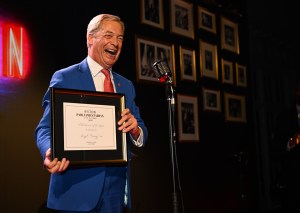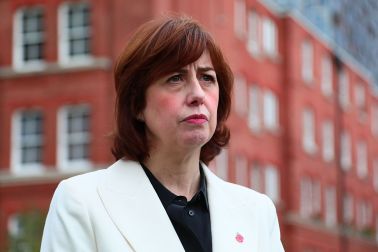Being anonymous doesn’t immunize you from criticism, as the nameless author of O: A Presidential Novel has discovered recently. Numerous high profile reviewers have been sharpening their critical cutlery and tucking in.
Simon Schama, usually the model of bouncy good humour, was brought to a savage, Swiftian boil by ‘this turkey’ in the Financial Times over the weekend. And his guess at the reason for anonymity is amusing, if not a little
cruel: ‘…if you’d committed something as dull as this you’d want to make sure no one found out either.’ A definite thumbs-down.
Justin Webb, in the Times, is a touch kinder. The book might read as if written ‘by a committee of twenty-somethings who…sure don’t know how to
write’; but it has a detached quality that could also be ‘a perfect reflection of the president it describes’ (Obama on the 2012 election campaign).
Webb’s idea of the tone mirroring its subject matter is expanded upon by Nicholas Blincoe in the Telegraph producing a suitably scathing conclusion: ‘…if we wonder what Obama, specifically, wants, all we get is hot air. O, the novel, offers no answers – until we ask why the author failed to use the blank space to create a more heroic president. O is, perhaps, a better portrait than the author intended, a bore who acknowledges that even the magic of his oratory has vanished.’ Ouch.
By far the most complimentary British analysis comes from the keyboard of Mark Lawson for the Guardian. Lawson provides a detailed and fascinating look at the history of the insider political novel, right from its roots with a young Benjamin Disraeli to Joe Klein’s Clinton curtain-puller, Primary Colors. And, contra Schama, he even finds some warm words for the writing, crediting the author with ‘a faculty for fluent, rhythmic prose’. Though the praise is somewhat diluted with the smirking afterthought – ‘possibly with a news-magazine sheen‘.
On home turf, the America reviews follow similar tramlines, though often with more specific gripes. Ron Charles, in the Washington Post, claims that the ‘author seems incapable of competing with the outlandish real-life characters who have blessed and cursed American political life‘ while in the New York Times, Michiko Kakutani despairs at the ‘novel’s many inane implausibilities’ and slaps down its ‘very bad romance novel prose’. Meanwhile Tim Rutten, in the Los Angeles Times, claims, rather intriguingly, that the novel’s ‘largest shortcoming is its implacably earnest tone.’
Being Anonymous may not deflect criticism, it seems; but it does virtually pre-book column inches (as Schama and Blincoe point out above). Though, if the author finally has been outed as both the Guardian and the New York Times suggest, then even that carrot may have dangled its last.





Comments